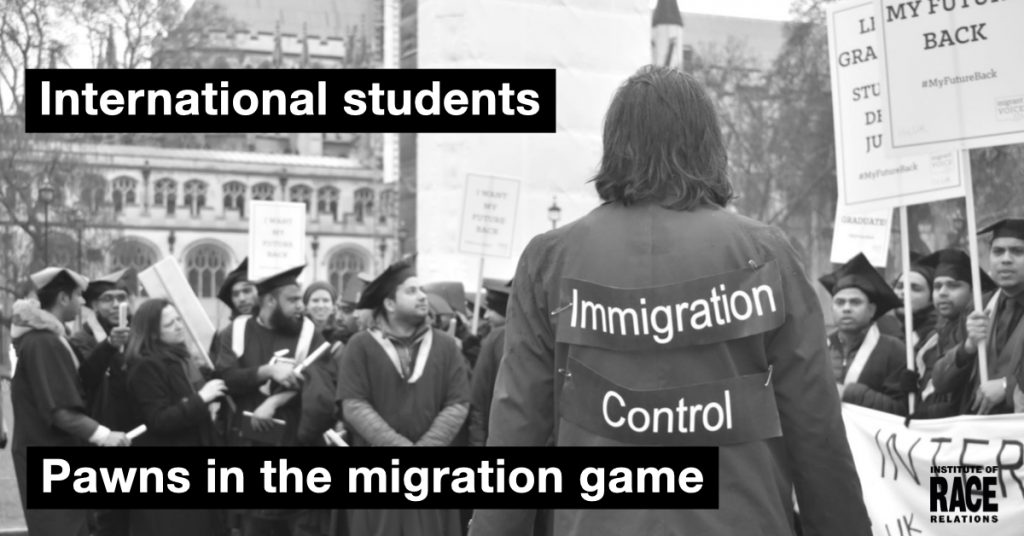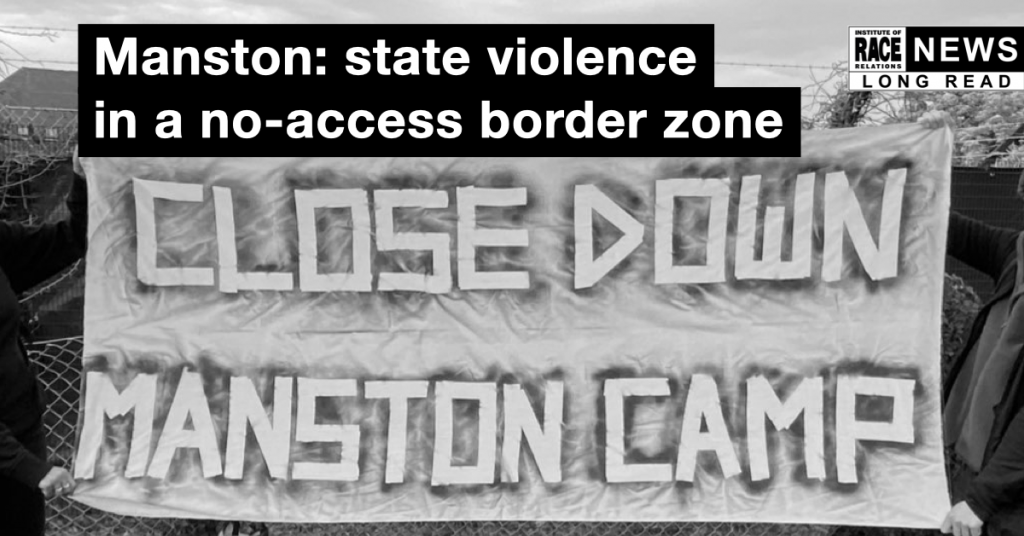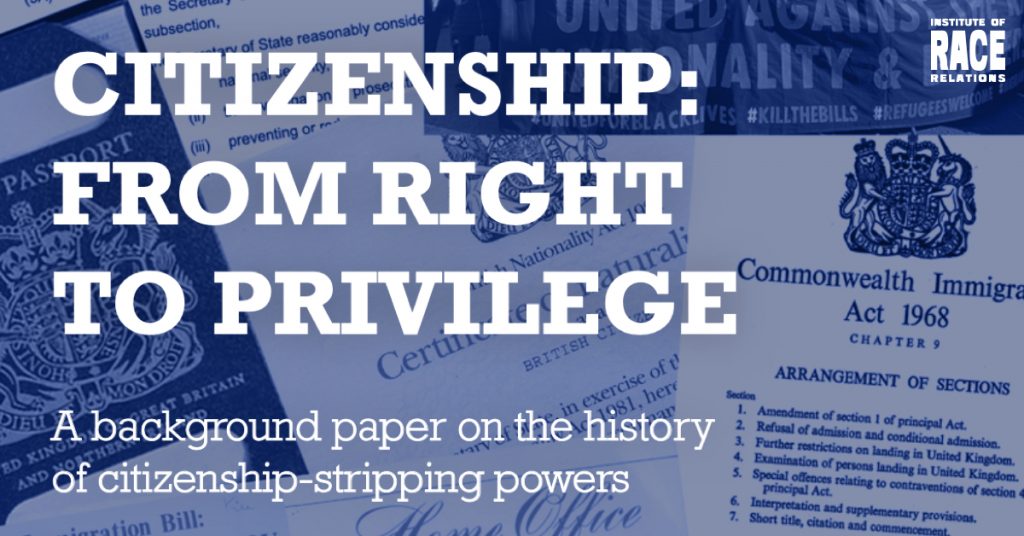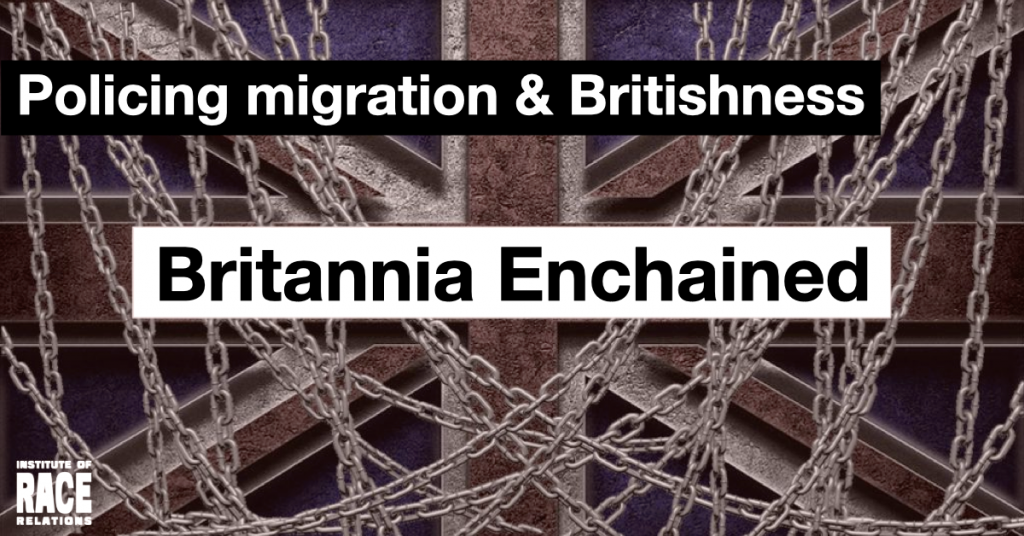Policing migration
Unlike the policing of racialised minorities, the war on migrants and asylum seekers has been at the centre of government rhetoric as well as policy, used as an emblem of post-Brexit sovereignty and a reminder of Britain’s imperial heritage. When net migration statistics rose in the autumn, the government showed it was ‘taking back control’ by announcing a crackdown, this time on foreign students at ‘inadequate institutions’ and their dependants (the Mail obliged by showing how Nigerian students – a perennial bête noire for politicians and the media – brought more family members with them than anyone else). And after another year of insulting treatment for Windrush victims seeking compensation for a scandal ‘caused by 30 years of racist immigration laws’, the government is reportedly abandoning key commitments it made to reform the immigration system and give a voice to its victims.

With a backlog of 140,000 asylum claims awaiting decision for up to five years, supermarket staff recruited to fill gaps, resignations of the refugee minister and the director-general of asylum and protection (whose post was abolished), the asylum system is broken. A racial hierarchy in the ‘safe and legal’ routes for refugees, used to justify the criminalisation and offshoring of visa-less refugees in the Nationality and Borders Act, is evident in the grant of over 200,000 visas under the Ukraine family and sponsorship schemes since March; around 150,000 since February 2021 under the welcome scheme for Hong Kongers, 6,000 under schemes for Afghans who worked for the British army before the evacuation of Kabul, and 1,300 resettlement visas for refugees from everywhere else for the year ending September 2022.
The treatment of those arriving without visas involves long stays in short-term holding facilities (STHFs) like Manston, ‘catastrophically overcrowded’ tents with sewage seepage, blankets used to block wind and rain, thin foam mats or cardboard to sleep on next to strangers; uncloseable toilet doors; wristband numbers instead of names; casual brutality in breaking up protests; diseases like diphtheria, which killed Iraqi Hussein Haseeb Ahmed. As the legal limit for detention in STHFs was 24 hours, ministers were forced to concede that asylum seekers held at Manston for weeks were illegally detained – and approved new rules permitting STHF detention for four days, dramatically downgrading legal standards for healthcare, legal advice, communications and sleeping arrangements, and removing obligations to screen for signs of torture and ill health. As Manston was emptied in the face of public outrage, detainees were abandoned homeless in London streets, or (the vast majority) bussed out to hotels, sometimes to unsafe, dehumanising conditions with broken beds and toilets, bedbugs, mould and vermin, where 21 people, including 2 newborns, died in the first six months of 2022; some in areas of far-right activity, with at least 182 intrusions last year.

The first flight to expel visa-less asylum seekers to Rwanda under the deal brokered by Priti Patel in April provoked hunger strikes, attempted suicides, protests and blockades, and was halted by an interim injunction from the European Court of Human Rights in June. The Rwanda deal, enthusiastically taken up by both new prime ministers and home secretary Braverman, was endorsed as legal by the High Court in December. Sunak announced yet another crackdown on the small boats and a ban on ‘illegally arriving’ migrants obtaining residence rights in the UK, further demonstrating his tough credentials by setting up a multi-departmental taskforce in January 2023 to reinforce the ‘hostile environment’ for undocumented migrants, blocking access to banking facilities and checking immigration status through schools and the NHS.
Policing Britishness
The racialisation of citizenship has made Britishness fragile and conditional for British Muslims, against whom, as the criteria for deprivation have expanded and the threshold lowered, the deprivation powers have almost exclusively been deployed. Shamima Begum’s appeal against the decision in 2019 to deprive her of citizenship was heard in November without her, following the Supreme Court’s 2021 ruling that she cannot return to the UK for it. The Special Immigration Appeals Commission heard how Begum and her companions, schoolgirls born and brought up in Britain, were trafficked to Syria as IS sex slaves at 15 following sophisticated online grooming. The man who took them was a Canadian intelligence informant.

The UN Special Rapporteur on contemporary forms of racism reported in 2019[i] that ‘some leading politicians … have cast Muslims as inherently dangerous, inherently opposed to the country’s prosperity and inherently foreign’. Conflating adherence to Islam with ‘extremism’ and linking both with ‘terrorism’ underlay the statutory Prevent duty and the framing of Muslims as a ‘suspect community’. The Shawcross review into Prevent, launched in 2021 and finally published in February 2023, claims it has over-focussed on right-wing terrorism and is not doing enough to counter non-violent Islamist extremism – claims described as ‘insulting’ and ‘driven by a right-wing viewpoint’ by former counter-terror police chief Neil Basu. Shawcross’s call for the programme to be extended to those ‘operating below the terrorism threshold who can create an environment conducive to terrorism’ encourages more intensive surveillance and criminalisation of Muslim communities.
The review had been boycotted by dozens of charities and campaign groups given Shawcross’s earlier remarks describing Islam as ‘one of the greatest, most terrifying problems of our future’. The People’s Review of Prevent, conducted by the boycotting groups and published in February 2022, called for the abolition of the ‘ineffective, disproportionate and discriminatory’ programme, quoting the UN Special Rapporteur on human rights while countering terrorism demand for the government urgently to address concerns about discrimination and ‘de facto criminalisation of … children’, for ‘targeted individuals, primarily Muslims’. However, the government has accepted all Shawcross’s recommendations.

